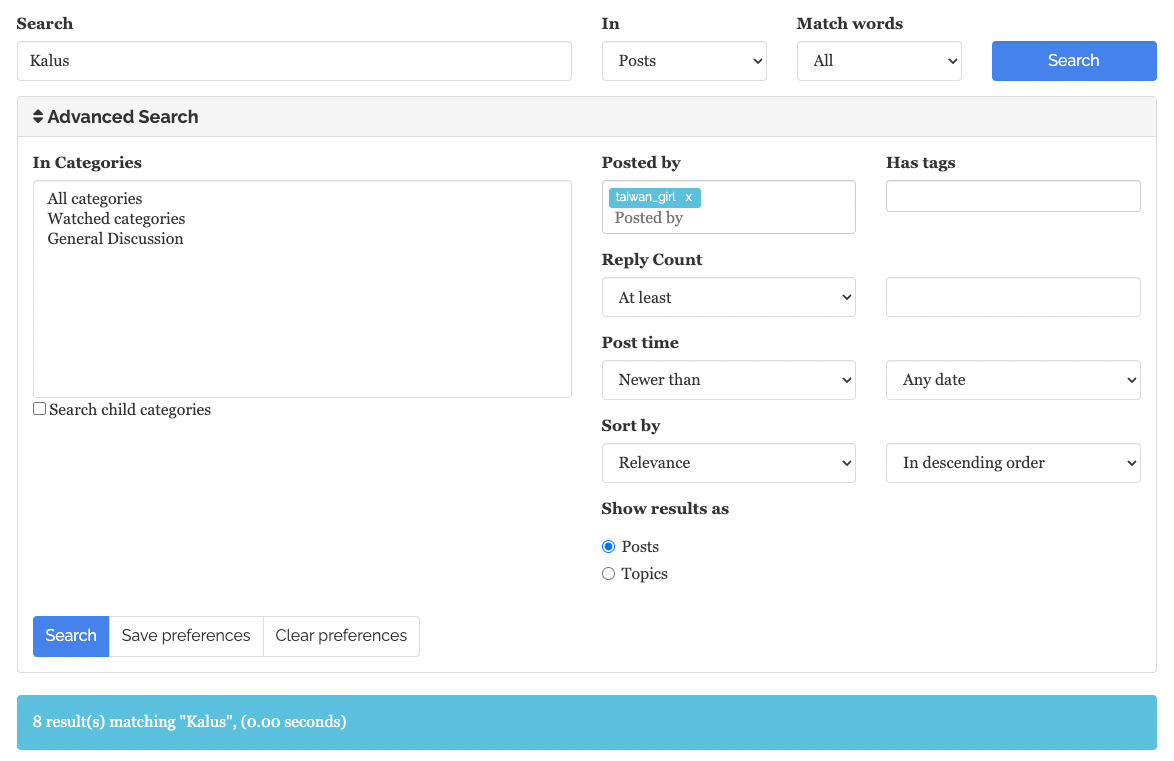Google: "Thou shalt not tell Biden jokes."
-
Go to google.com and type in "Biden Jokes"
Here's what you'll see.
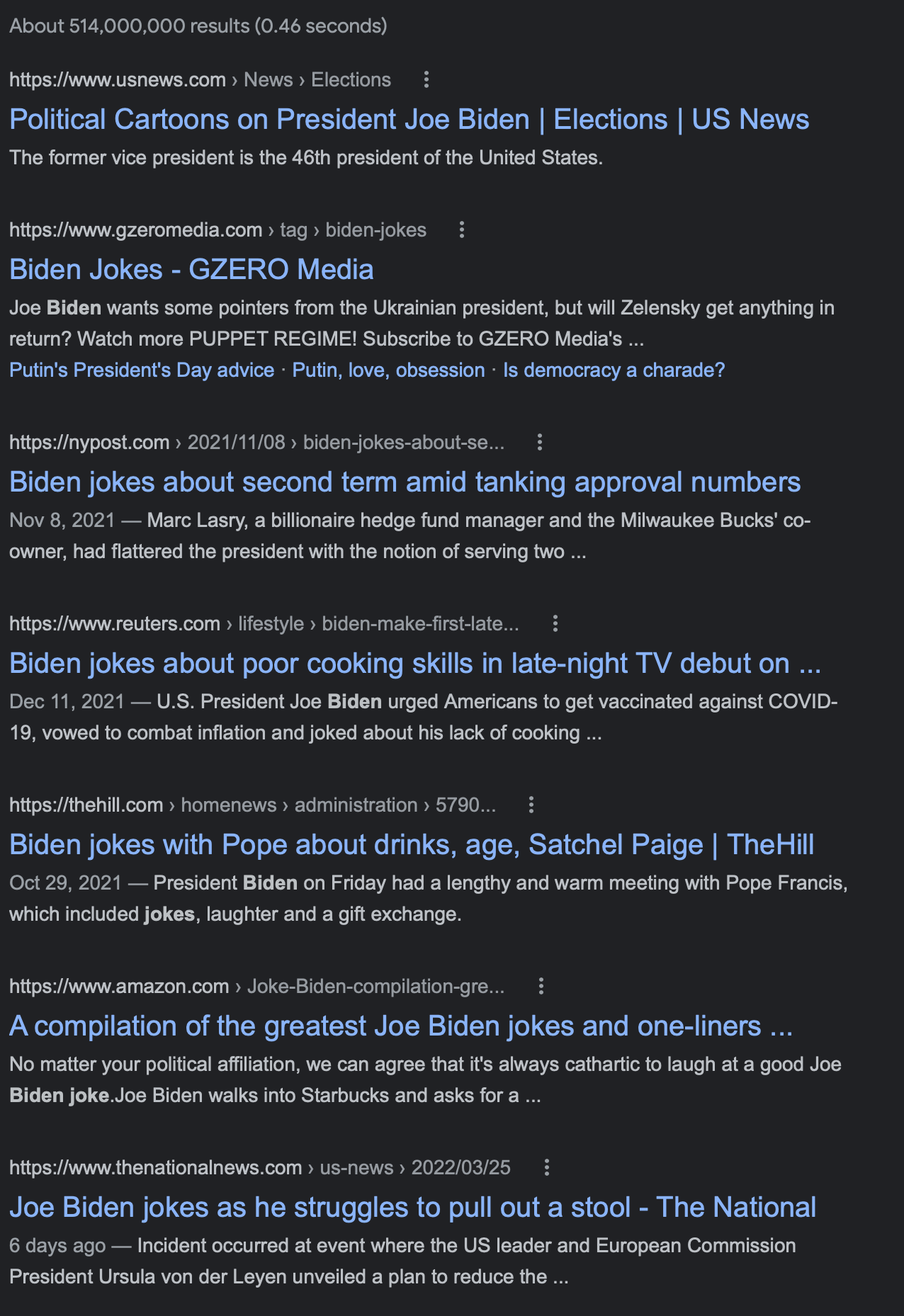
As in "Biden jokes about...."
Now do Trump:
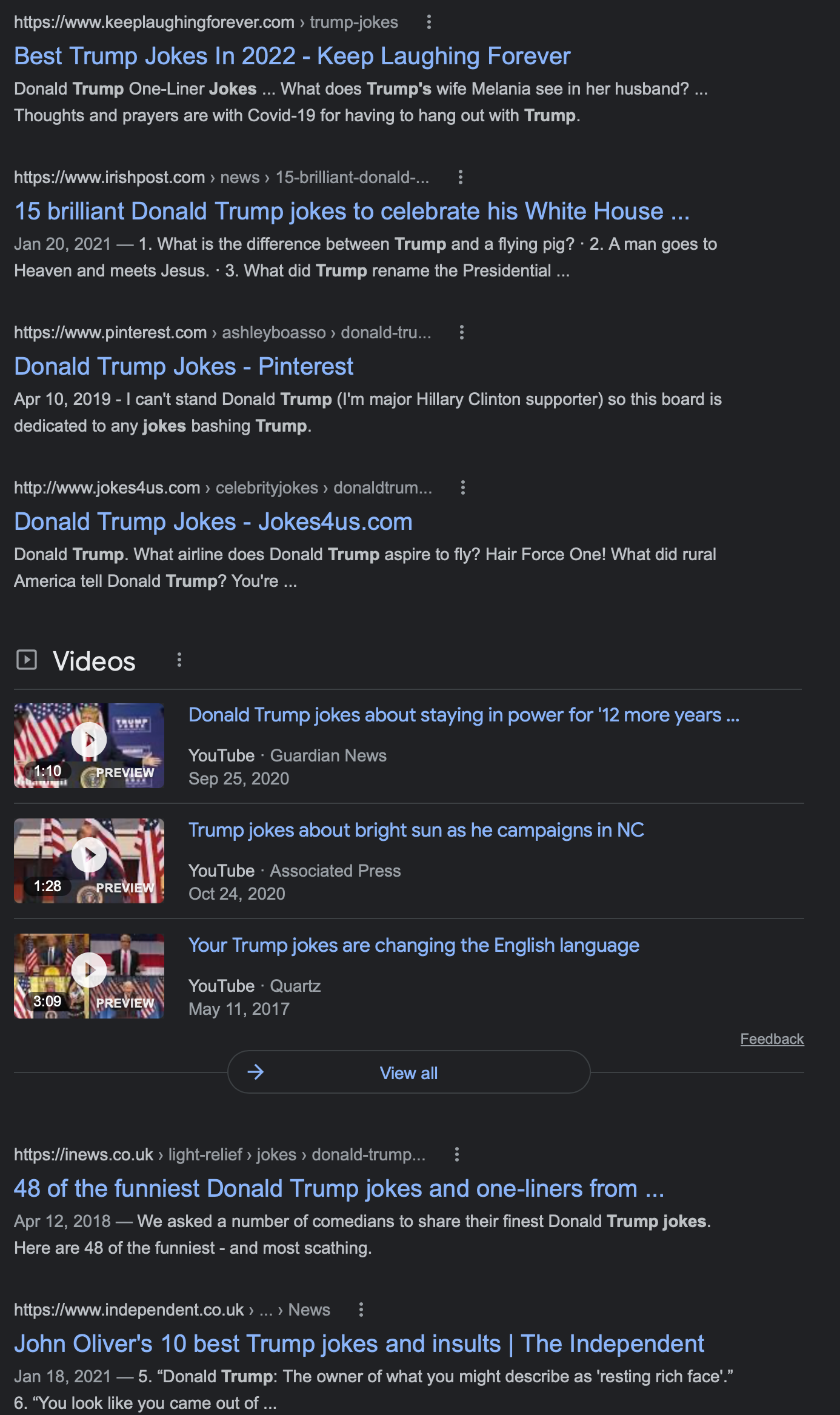
Hmmm...Jokes about Trump.
Surely it's not Google, but something else.
OK, let's do "Biden Jokes" at DuckDuckGo
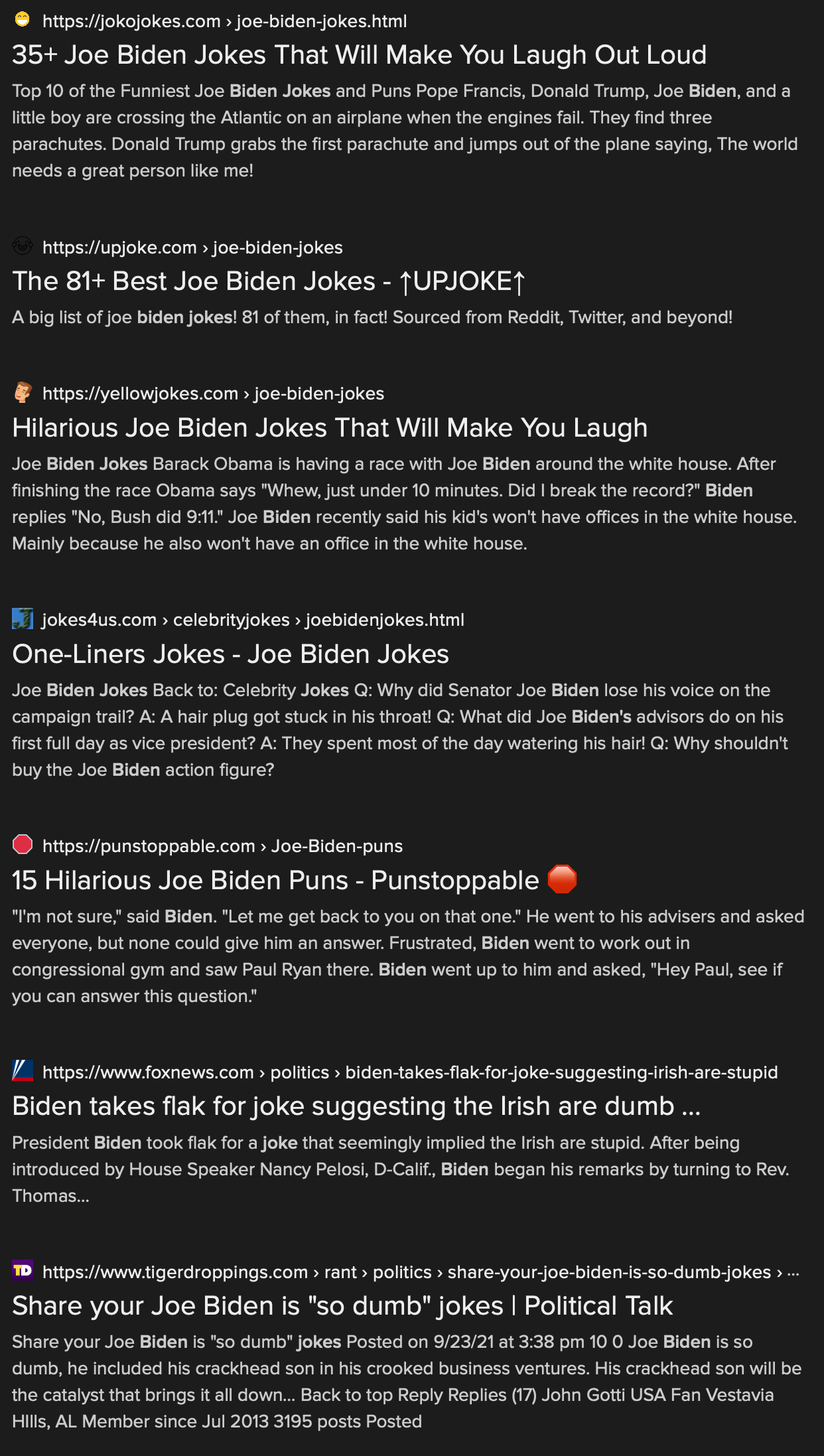
Interesting. Jokes about Biden.
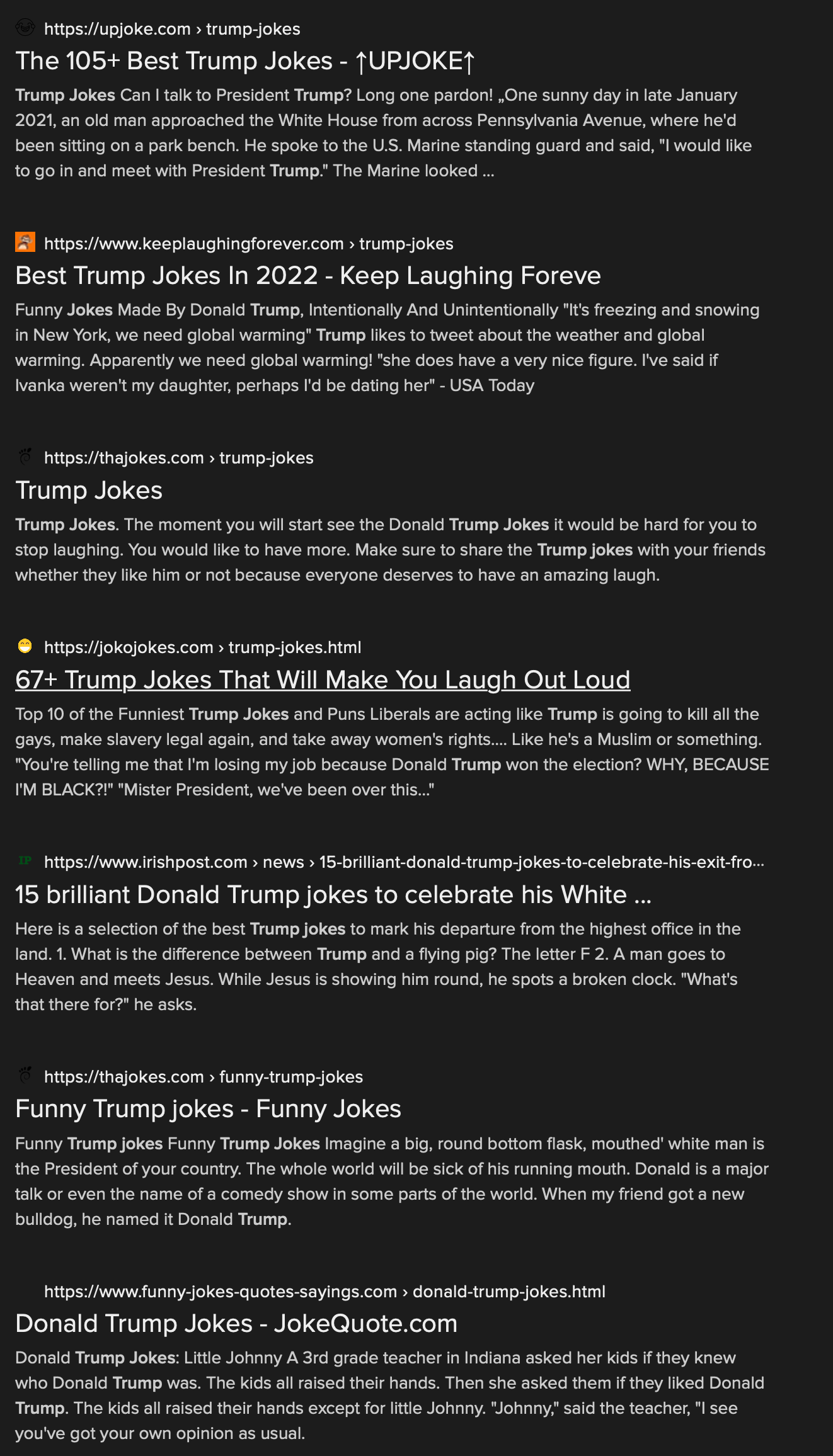
Why, it's almost as though Google is trying to not let you see jokes about Biden.
-
I'm not convinced that this is intentional.
First of all, the search algorithms are highly complex and they tend to produce strange results in many cases that nobody can explain. Maybe, with a slightly different wording, you could produce the opposite result.
Secondly, what would Google have to win? The upside is minimal, but the downside if they'd be caught intentionally manipulating the results is dramatic.
-
-
I'm not convinced that this is intentional.
First of all, the search algorithms are highly complex and they tend to produce strange results in many cases that nobody can explain. Maybe, with a slightly different wording, you could produce the opposite result.
Secondly, what would Google have to win? The upside is minimal, but the downside if they'd be caught intentionally manipulating the results is dramatic.
@Klaus said in Google: "Thou shalt not tell Biden jokes.":
I'm not convinced that this is intentional.
And yet, you see what I posted. Intentional or not, the pages are legit. DuckDuckGo gives dramatically different results. More, ahem, "fair and balanced."
First of all, the search algorithms are highly complex and they tend to produce strange results in many cases that nobody can explain. Maybe, with a slightly different wording, you could produce the opposite result.
Maybe. But I'm too lazy to try. Presumably the same algorithm is applied in both searches with various qualifiers, such as "If 'Biden' then go here," "If 'Trump', go there."
Secondly, what would Google have to win? The upside is minimal, but the downside if they'd be caught intentionally manipulating the results is dramatic.
We've already seen, on multiple occasions how Google (and others) adjust what your search reveals, and what it doesn't).
Upside? Feeds their clientele.
Downside? They don't care. They don't have to.
-
Russia to Google: "You shall not call it a 'war'."
Google: Okay
In early March, contractors working for Google to translate company text for the Russian market received an update from their client: Effective immediately, the ongoing Russian war against Ukraine could no longer be referred to as a war but rather only vaguely as “extraordinary circumstances.”
The internal email, obtained by The Intercept, was sent by management at a firm that translates corporate texts and app interfaces for Google and other clients.
The email passed along instructions from Google with the new wording. The instructions also noted that the word “war” should continue to be used in other markets and that the policy change was intended to keep Google in compliance with a Russian censorship law enacted just after the invasion of Ukraine.
Asked about the guidance, Google spokesperson Alex Krasov told The Intercept, “While we’ve paused Google ads and the vast majority of our commercial activities in Russia, we remain focused on the safety of our local employees. As has been widely reported, current laws restrict communications within Russia. This does not apply to our information services like Search and YouTube.”
According to a translator who spoke to The Intercept, the orders apply to all Google products translated into Russian, including Google Maps, Gmail, AdWords, and Google’s policies and communications with users. (The translator asked for anonymity to avoid reprisal by their employer.)
The internal memo helps explain why some Google webpages, including an advertising policy and video help document found by The Intercept, use euphemistic terms like “emergency in Ukraine” in their Russian version but “war in Ukraine” in the English version.
The censorship law, signed by Russian President Vladimir Putin on March 4, created harsh criminal penalties of up to 15 years in prison for disseminating so-called false information about the Russian military. This is widely believed to include referring to Russia’s assault on Ukraine as a war or invasion, given that the Kremlin had previously drawn a hard line against such terms. The Kremlin calls the war a “special military operation,” and its internet censorship board has reportedly threatened to block websites that use terms like “invasion.”
-
I'm not convinced that this is intentional.
First of all, the search algorithms are highly complex and they tend to produce strange results in many cases that nobody can explain. Maybe, with a slightly different wording, you could produce the opposite result.
Secondly, what would Google have to win? The upside is minimal, but the downside if they'd be caught intentionally manipulating the results is dramatic.
@Klaus said in Google: "Thou shalt not tell Biden jokes.":
I'm not convinced that this is intentional.
First of all, the search algorithms are highly complex and they tend to produce strange results in many cases that nobody can explain. Maybe, with a slightly different wording, you could produce the opposite result.
Secondly, what would Google have to win? The upside is minimal, but the downside if they'd be caught intentionally manipulating the results is dramatic.
I kind of agree with Kalus on this. Seems strange that someone with authority would take the time and effort to do this. I dont think it is something that you could do in a minute or two. And would they really be sure they were getting the results they want.
But maybe. Who knows.

